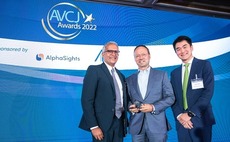
Cultivating Asia carve-outs
Private equity investors agreed or completed nearly 200 buyouts in Asia last year, according to AVCJ Research. Roughly one quarter of these were carve-outs from corporate owners. South Korea, where domestic conglomerates are under pressure to divest non-core assets, was the largest source of deal flow.
The two largest carve-outs were also Korean: Hahn & Company teamed up with Hankook Tire to buy US auto parts maker Visteon Corp's local subsidiary Halla Visteon Climate Control (HVCC) for $3.6 billion; and The Carlyle Group acquired ADT Korea, fire safety and security systems provider Tyco International's local business, for $1.93 billion.
The general motivation for these divestments was the vendors' need to slim down and concentrate on particular business lines. Visteon said the HVCC sale would allow it to focus on cockpit electronics and cloud-based products and services. The ADT Korea sale was part of an extensive restructuring initiative at Tyco, which also saw the company offload its North American security unit.
More of these deals will apparently follow in 2015. Divestments are going to become a core component of companies' capital strategy this year as management teams response to pressure to improve portfolio performance and shareholders returns, according to a study by EY.
Nearly two thirds of executives in Asia Pacific surveyed as part of the study expect to see an increase in strategic sellers, compared to 54% globally. At the same time, about half of companies surveyed in the region anticipate a rise in unsolicited approaches by would-be buyers. Among those that have completed divestments, the bulk of the proceeds went towards reinvesting in growth, with two thirds seeing an increased valuation multiple for the remaining business following the sale.
Private equity firms are not the only potential acquirers of these assets, but divestments represent a strong investment theme. The most frequently cited reasons for corporates exiting particular units are the lack of a competitive market position or the asset not being part of the parent's core activities. With new investment and expertise, a private equity owner could recalibrate a business and make it competitive once again - several GPs have achieved this by supporting expansion into Asia.
Similarly, an investor driven by long-term returns is incentivized to take a non-core, and perhaps unloved, unit and help it perform. For instance, an existing management team might be frustrated by myriad reporting channels to bosses in Europe or its parent's reluctance to invest in a business that is no longer a priority. Private equity comes in, encourages management to take a minority stake in the business, commits fresh capital, and seeks to introduce better operating procedures.
An interesting aspect of the EY study is nearly 64% of respondents in Asia admit they don't conduct portfolio reviews often enough. The implication is that assets ripe for divestment are not identified quickly and this stymies deal flow. It is possible that private equity investors proposing divestments to companies would either be dismissed out of hand, or there would be insufficient preparation of an asset for sale, resulting in a more challenging transaction.
Indeed, the study observes that corporates can learn much from private equity when readying a divestment. Measures include: affecting operational improvements early, treating a business as a stand-alone entity with its own performance indicators, re-investing working capital in growth areas, establishing strong legal and governance systems, putting in place the right management, and introducing strategies for long-term revenue enhancement.
These are essentially the same procedures PE firms follow when working towards a trade sale. Indeed, recruiting new management, restructuring the sales and marketing, and investing in brand rejuvenation formed the basis of Affinity Equity Partners and KKR's profitable exit from South Korea's Oriental Brewery last year - as they sold the business to Anheuser-Busch InBev, the company from which they carved out the asset in the first place.
Latest News
Asian GPs slow implementation of ESG policies - survey
Asia-based private equity firms are assigning more dedicated resources to environment, social, and governance (ESG) programmes, but policy changes have slowed in the past 12 months, in part due to concerns raised internally and by LPs, according to a...
Singapore fintech start-up LXA gets $10m seed round
New Enterprise Associates (NEA) has led a USD 10m seed round for Singapore’s LXA, a financial technology start-up launched by a former Asia senior executive at The Blackstone Group.
India's InCred announces $60m round, claims unicorn status
Indian non-bank lender InCred Financial Services said it has received INR 5bn (USD 60m) at a valuation of at least USD 1bn from unnamed investors including “a global private equity fund.”
Insight leads $50m round for Australia's Roller
Insight Partners has led a USD 50m round for Australia’s Roller, a venue management software provider specializing in family fun parks.








